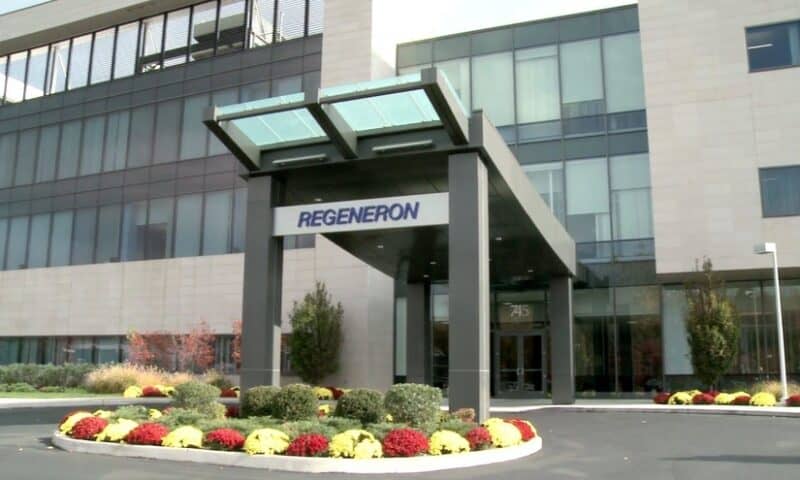Autophagy is the process by which cellular debris is reused to make new components. This waste-disposal system is important for normal cell survival, but scientists at Regeneron have found a drawback: Autophagy can also protect tumor cells from being targeted by the immune system.
Using a CRISPR screening technology, the Regeneron researchers showed deleting an autophagy-related gene called Rb1cc1 could sensitize tumor cells to killing by the immune system’s T cells, thereby boosting the effect PD-1 and CTLA-4 checkpoint inhibitors in mice. The results were published in Science Immunology.
The data pointed to a new role for autophagy in cancer, opening the possibility of using autophagy inhibitors to enhance the efficacy of immuno-oncology drugs in more patients, the researchers said in the study.
To identify genes that modulate the susceptibility of tumors to T-cell-mediated killing, the Regeneron scientists performed a genomewide CRISPR/Cas9 screen in mouse colon adenocarcinoma cells. They found that the signaling of the inflammatory molecule TNF-alpha played a key role in tumor cell death—a finding that’s consistent with previous studies.
In contrast, autophagy in tumor cells appeared to protect them from T cell-mediated death, the team found. The researchers went on to show that removing three key autophagy genes—Rb1cc1, Atg9a and Atg12—sensitized the cancer cells to T-cell killing.
The Regeneron team dug deeper and found that deleting Rb1cc1 while blocking TNF-alpha with an antibody had a very limited effect on cancer cell killing, suggesting that the protective effect of autophagy is mediated mainly through the TNF-alpha pathway.
The researchers further tested the findings in a mouse model of breast cancer. Again, knocking out Rb1cc1 in the animals led to increased killing of tumor cells. The team treated the mice with a combination of PD-1 and CTLA-4 antibodies and showed that the cocktail completely cleared Rb1cc1-lacking tumors but only had a modest effect on the growth of control tumors. Similar results were observed in colon cancer models.
Even in tumors without the Rb1cc1 gene, simultaneously knocking out the TNF-alpha receptor limited the anti-cancer effect of immunotherapy in mice, the team showed, indicating that TNF-alpha and autophagy are indeed essential for the killing of cancer cells by T cells.
Other research teams have investigated the role of autophagy in cancer immunotherapy. Collaborators from the University of Toronto and Agios Pharmaceuticals identified the Fitm2 gene as a candidate for inhibition to boost the effect of immuno-oncology treatments. They also discovered that simultaneously removing both autophagy-related Atg12 and Atg5 genes helped cells resist T-cell killing, while targeting either one of them alone did not.
Tyme Therapeutics recently showed its investigational drug racemetyrosine (SM-88) could disrupt autophagy in pancreatic cancer cells and reduce levels of regulatory T cells and M2 macrophages, which are suppressors of the immune response against cancer.
In their study, the Regeneron scientists also found that inhibiting mTOR signaling—a strategy underlying such drugs as Novartis’ Afinitor—increased autophagic activity and protected tumor cells from T-cell killing.
Overall, the findings suggest targeting the autophagy pathway may be a promising strategy to make tumors more vulnerable to T-cell-based immunotherapies, potentially allowing more patients to benefit from those powerful drugs, the researchers wrote in the study.

